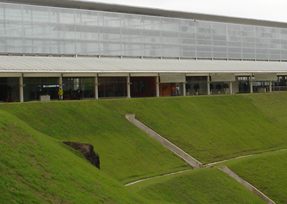The repeated rewinding of motors causes efficiency loss of as high as 5%. It is therefore practical to use rewound motors on low duty cycle applications. Fans, pumps and other variable speed applications consume less energy when variable frequency drives, fluid couplings and slip power recovery systems are used.
GLS lamps replaced by CFL lamps and electronic ballast instead of conventional choke help save energy in industries. Lamps and fixtures should be cleaned regularly and sodium vapor lamps should be used as they help save a significant amount of electricity when compared to mercury vapor lamps.
Diesel engines should be maintained on a regular basis as faulty and blocked parts increase fuel consumption. Fuel consumption should be tracked per KWH of electricity generated and remedial measures can be taken if the increased fuel consumption is not matched by a proportionate increase in the power generated.
Air-conditioning bills can be lowered by using air-curtains, polyester sun films, automatic door closers and the like. Compressors should be evaluated for performance and the ones showing maximum efficiency should be used on a regular basis while keeping others on standby.
Using treated water in boilers, recovering and reusing waste heat from furnaces, ensuring complete combustion of fuel oil are some of the other steps to ensure efficient use of energy resources.










